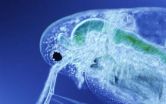(Press-News.org) WASHINGTON, D.C. -- Registered dietitians are one of several groups of healthcare professionals who report using dietary supplements as part of their health regimen, according to a newly published study in Nutrition Journal, a peer-reviewed, online journal that focuses on the field of human nutrition. According to data from the 2009 "Life…supplemented" Healthcare Professionals (HCP) Impact Study, 74 percent of dietitians use dietary supplements regularly while 22 percent reported using them occasionally or seasonally. The data also indicated that an overwhelming percentage of dietitians, 97 percent, recommend dietary supplements to their clients.
"Dietitians are uniquely qualified to evaluate the adequacy of nutrient intake and to make rational choices about dietary supplement use for themselves and for their clients or patients, when appropriate," stated the study's authors.
Usage of a multivitamin was high amongst dietitians, with 84 percent of those surveyed indicating they had used a multivitamin within the past year. Looking at specialty supplement usage, omega-3 or fish oil supplements (47 percent), probiotics (24 percent), fiber (22 percent) and green tea supplements (18 percent) were cited by considerable proportions of surveyed dietitians. Several individual vitamins and minerals, including calcium (63 percent), vitamins D (43 percent), C (29 percent) and B (23 percent), were also reported to be used.
When asked why they choose to use dietary supplements, the top three reasons cited by dietitians who take them were bone health (58 percent), overall health and wellness benefits (53 percent), and to fill nutrient gaps in the diet (42 percent). Interestingly, the top three reasons that dietitians were most likely to recommend dietary supplements to clients were also bone health (72 percent), filling nutrient gaps (69 percent), and overall health and wellness (50 percent). Other top reasons for recommending supplements included lowering cholesterol (48 percent), heart health (47 percent), dietary pattern/vegetarian/vegan (45 percent) and digestive and gastrointestinal health (41 percent).
Also noteworthy, the study found that dietitians were very likely to report engaging in other healthy habits including trying to eat a balanced diet (96 percent), managing stress (92 percent), visiting their own healthcare professional regularly (86 percent), exercising regularly (83 percent), maintaining a healthy weight (80 percent) and regularly getting a good night's sleep (72 percent). Moreover, only 24 percent said they often consumed large amounts of caffeine and only three percent smoked or consumed large quantities of alcohol.
This study is the latest to explore the use of dietary supplements by healthcare professionals. Like previous studies, it adds to the growing body of evidence that suggests healthcare professionals commonly use dietary supplements. Last year, Nutrition Journal published findings from a separate 2008 study from "Life…supplemented" that found that for physician specialists―specifically dermatologists, cardiologists and orthopedists―personal usage of and patient recommendations for dietary supplements is quite common. In 2009, Nutrition Journal published findings from a separate 2007 "Life…supplemented" study that found that physicians and nurses are as likely as members of the general public to use dietary supplements and that most physicians and nurses recommend supplements to their patients.
The published article reporting on the study findings was co-authored by Annette Dickinson, Ph.D., consultant to and past president of the Council for Responsible Nutrition; Leslie Bonci, M.P.H., R.D., CSSD, LDN, director of sports nutrition, University of Pittsburgh Medical Center and consultant to the "Life…supplemented" consumer wellness education program; Nicolas Boyon, senior vice president, Ipsos Public Affairs, and Julio Franco, senior research manager, Ipsos Public Affairs. Ipsos Public Affairs conducted the "Life…supplemented" HCP Impact Study on behalf of CRN.
###
Note to Editor: To arrange an interview with lead author Dr. Annette Dickinson, please contact Trainor Walsh at twalsh@crnusa.org or 202-204-7682.
Note to Editor: The Council for Responsible Nutrition (CRN), founded in 1973, is a Washington, D.C.-based trade association representing dietary supplement manufacturers and ingredient suppliers. In addition to complying with a host of federal and state regulations governing dietary supplements in the areas of manufacturing, marketing, quality control and safety, our 75+ manufacturer and supplier members also agree to adhere to additional voluntary guidelines as well as CRN's Code of Ethics. Visit http://www.crnusa.org.
Ipsos Public Affairs is a non-partisan, objective, survey-based research practice made up of seasoned professionals. We conduct strategic research initiatives for a diverse number of American and international organizations, based not only on public opinion research, but elite stakeholder, corporate, and media opinion research. Ipsos Public Affairs is a member of the Ipsos Group, a leading global survey-based market research company. We provide boutique-style customer service and work closely with our clients, while also undertaking global research. To learn more visit: http://www.ipsos-na.com
Published study finds usage of, reccomendations for dietary supplements high among dietitians
2012-04-02
ELSE PRESS RELEASES FROM THIS DATE:
Amyloid beta in the brain of individuals with Alzheimer's disease
2012-04-02
The deposition of amyloid beta in the brain of individuals with Alzheimer's disease is the focus of much research into both its cause and treatment.
While there may not be a consensus as to whether the deposition contributes to the disease or is a consequence of the disease, there is agreement that it is not favoured thermodynamically, meaning that something else is promoting the process.
Other proteins are often co-deposited in vivo with amyloid beta and one such protein is serum amyloid P component (or SAP). Recent evidence has suggested that SAP is elevated in Alzheimer's ...
Tales from the crypt lead researchers to cancer discovery
2012-04-02
HUNTSVILLE, Ala – Tales from the crypt are supposed to be scary, but new research from Vanderbilt University, the HudsonAlpha Institute for Biotechnology and colleagues shows that crypts can be places of renewal too: intestinal crypts, that is. Intestinal crypts are small areas of the intestine where new cells are formed to continuously renew the digestive tract. By focusing on one protein expressed in our intestines called Lrig1, the researchers have identified a special population of intestinal stem cells that respond to damage and help to prevent cancer.
The research, ...
Newly discovered foot points to a new kid on the hominin block
2012-04-02
It seems that "Lucy" was not the only hominin on the block in northern Africa about 3 million years ago.
A team of researchers that included Johns Hopkins University geologist Naomi Levin has announced the discovery of a partial foot skeleton with characteristics (such as an opposable big toe bone) that don't match those of Lucy, the human ancestor (or hominin) known to inhabit that region and considered by many to be the ancestor of all modern humans.
The discovery is important because it provides first-ever evidence that at least two pre-human ancestors lived between ...
US stockpile security and international monitoring capabilities strengthened, says new report on technical issues behind the comprehensive nuclear test ban treaty
2012-04-02
WASHINGTON — The United States is now in a better position than at any time in the past to maintain a safe and effective nuclear weapons stockpile without testing and to monitor clandestine nuclear testing abroad, says a new report from the National Research Council. The report, requested by the Office of the Vice President and the White House Office of Science and Technology Policy, reviews and updates a 2002 study that examined the technical concerns raised about the Comprehensive Nuclear Test Ban Treaty (CTBT). The report does not take a position on whether the U.S. ...
Planet under Pressure conference, London: Final statement
2012-04-02
Scientists issued the first "State of the Planet" declaration at a major gathering of experts on global environmental and social issues in advance of the major UN Summit Rio+20 in June.
The declaration opens: "Research now demonstrates that the continued functioning of the Earth system as it has supported the well-being of human civilization in recent centuries is at risk." It states that consensus is growing that we have driven the planet into a new epoch, the Anthropocene, where many planetary-scale processes are dominated by human activities. It concludes society ...
Evolving to fight epidemics: Weakness can be an advantage
2012-04-02
When battling a deadly parasite epidemic, less resistance can sometimes be better than more, a new study suggests.
A freshwater zooplankton species known as Daphnia dentifera endures periodic epidemics of a virulent yeast parasite that can infect more than 60 percent of the Daphnia population.
During these epidemics, the Daphnia population evolves quickly, balancing infection resistance and reproduction.
A new study reveals that the number of vertebrate predators in the water and the amount of food available for Daphnia to eat influence the size of the epidemics and ...
Lung cancers detected by CT screening grow as fast as those found with traditional methods
2012-04-02
A new study led by researchers at Mount Sinai School of Medicine indicates that CT scans are more effective than traditional lung cancer detection methods at identifying aggressive lung cancers in their most treatable stages. The data, published online March 27 in the journal Radiology, demonstrate that lung cancers found through annual CT screening are similar to those found in routine practice, both in terms of tumor growth rates and cell-type distribution. In fact, the report showed that 79 percent of the cases diagnosed through annual repeat CT scans were detected at ...
Penn biologists identify a key enzyme involved in protecting nerves from degeneration
2012-04-02
PHILADELPHIA –- A new animal model of nerve injury has brought to light a critical role of an enzyme called Nmnat in nerve fiber maintenance and neuroprotection. Understanding biological pathways involved in maintaining healthy nerves and clearing away damaged ones may offer scientists targets for drugs to mitigate neurodegenerative diseases such as Huntington's and Parkinson's, as well as aid in situations of acute nerve damage, such as spinal cord injury.
University of Pennsylvanian biologists developed the model in the adult fruit fly, Drosophila melanogaster.
"We ...
NIH study finds women spend longer in labor now than 50 years ago
2012-04-02
Women take longer to give birth today than did women 50 years ago, according to an analysis of nearly 140,000 deliveries conducted by researchers at the National Institutes of Health. The researchers could not identify all of the factors that accounted for the increase, but concluded that the change is likely due to changes in delivery room practice.
The study authors called for further research to determine whether modern delivery practices are contributing to the increase in labor duration.
The researchers compared data on deliveries in the early 1960s to data gathered ...
Preventing home invasions means fighting side-by-side for coral-dwelling crabs and shrimp
2012-04-02
As any comic book lover knows, when superheroes band together the bad guys fall harder. The strength that comes in numbers is greater than the sum of its parts.
The same holds true, researchers have recently learned, when different species of crabs (genus Trapezia) and snapping shrimp (Alepheus lottini) in the central Pacific band together to defend their coral homes from hungry seastars. In these frequent conflicts "one-plus-one doesn't always equal two, sometime it is more," explains Seabird McKeon, a marine biologist at the National Museum of Natural History's Smithsonian ...


